Related Research Articles

The Confederate States of America (CSA), commonly referred to as the Confederate States (C.S.), the Confederacy, or the South, was an unrecognized breakaway republic in the Southern United States that existed from February 8, 1861, to May 5, 1865. It was composed of eleven U.S. states that declared secession; South Carolina, Mississippi, Florida, Alabama, Georgia, Louisiana, Texas, Virginia, Arkansas, Tennessee, and North Carolina. These states warred against the United States during the American Civil War.

Robert Edward Lee was a Confederate general during the American Civil War, who was appointed the overall commander of the Confederate States Army toward the end of the war. He led the Army of Northern Virginia, the Confederacy's most powerful army, from 1862 until its surrender in 1865, earning a reputation as a skilled tactician.
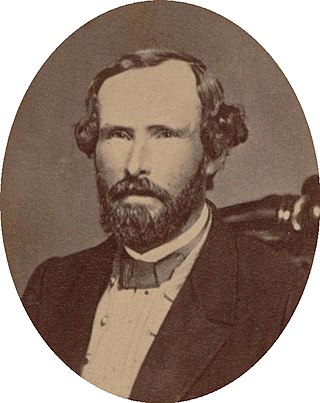
George Wythe Randolph was a Virginia lawyer, planter, politician and Confederate general. After representing the City of Richmond during the Virginia Secession Convention in 1861, during eight months in 1862 he was the Confederate States Secretary of War during the American Civil War, then served in the Virginia Senate representing the City of Richmond until the war's end.

Henry Alexander Wise was an American attorney, diplomat, politician and slave owner from Virginia. As the 33rd Governor of Virginia, Wise served as a significant figure on the path to the American Civil War, becoming heavily involved in the 1859 trial of abolitionist John Brown. After leaving office in 1860, Wise also led the move toward Virginia's secession from the Union in reaction to the election of Abraham Lincoln and the Battle of Fort Sumter.

Neo-Confederates are groups and individuals who portray the Confederate States of America and its actions during the American Civil War in a positive light. The League of the South, the Sons of Confederate Veterans and other neo-Confederate organizations continue to defend the secession of the 11 former Confederate States.
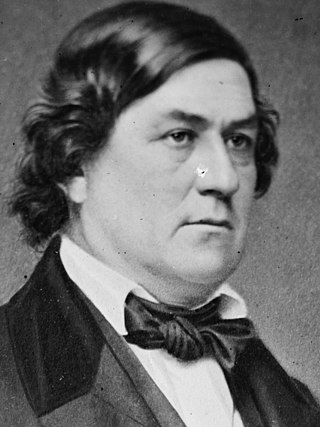
Robert Mercer Taliaferro Hunter was an American lawyer, politician and planter. He was a U.S. representative, speaker of the House (1839–1841), and U.S. senator (1847–1861). During the American Civil War, Hunter became the Confederate States Secretary of State (1861–1862) and then a Confederate senator (1862–1865) and critic of President Jefferson Davis. After the war, Hunter failed to win re-election to the U.S. Senate, but did serve as the treasurer of Virginia (1874–1880) before retiring to his farm. After fellow Democrat Grover Cleveland was elected President of the United States in 1884, Hunter became the customs collector for the port of Tappahannock until his death.

The Lost Cause of the Confederacy is an American pseudohistorical and historical negationist myth that argues the cause of the Confederate States during the American Civil War was just, heroic, and not centered on slavery. First enunciated in 1866, it has continued to influence racism, gender roles, and religious attitudes in the Southern United States into the 21st century.

Roger Atkinson Pryor was an American newspaper editor and politician who became known for his fiery oratory in favor of secession from the United States; he was elected both to national and Confederate office, and served as a general for the Confederate Army during the American Civil War. In 1865 he moved to New York City to remake his life, and in 1868 brought his family north. He was among a number of influential southerners in the North who became known as "Confederate carpetbaggers."

Edmund Ruffin III was a wealthy Virginia planter, amateur soil scientist, and political activist best known as an early advocate for secession of the southern slave states from the United States. He served in the Virginia Senate from 1823 to 1827. In the three decades before the American Civil War he published polemics in support of states' rights and the protection of chattel slavery, earning notoriety as one of the so-called Fire-Eaters. Ruffin was present at the Battle of Fort Sumter in April 1861 and fired one cannon shot at the fort. This gave rise to the legend that Ruffin fired the first shot of the Civil War. Ruffin did enlist as a Confederate soldier despite his advanced age. When the war ended in defeat in 1865, he committed suicide rather than accept what he called "Yankee rule."
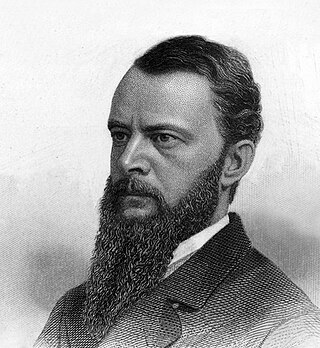
Edward Alfred Pollard was an American author, journalist, and Confederate sympathizer during the American Civil War who wrote several books on the causes and events of the war, notably The Lost Cause: A New Southern History of the War of the Confederates (1866) and The Lost Cause Regained (1868), wherein Pollard originated the long-standing pseudo-historical ideology of the Lost Cause of the Confederacy.

Mississippi was the second southern state to declare its secession from the United States, doing so on January 9, 1861. It joined with six other southern states to form the Confederacy on February 4, 1861. Mississippi's location along the lengthy Mississippi River made it strategically important to both the Union and the Confederacy; dozens of battles were fought in the state as armies repeatedly clashed near key towns and transportation nodes.

Georgia was one of the original seven slave states that formed the Confederate States of America in February 1861, triggering the U.S. Civil War. The state governor, Democrat Joseph E. Brown, wanted locally raised troops to be used only for the defense of Georgia, in defiance of Confederate president Jefferson Davis, who wanted to deploy them on other battlefronts. When the Union blockade prevented Georgia from exporting its plentiful cotton in exchange for key imports, Brown ordered farmers to grow food instead, but the breakdown of transport systems led to desperate shortages.
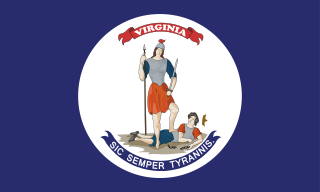
The American state of Virginia became a prominent part of the Confederacy when it joined during the American Civil War. As a Southern slave-holding state, Virginia held the state convention to deal with the secession crisis and voted against secession on April 4, 1861. Opinion shifted after the Battle of Fort Sumter on April 12, and April 15, when U.S. President Abraham Lincoln called for troops from all states still in the Union to put down the rebellion. For all practical purposes, Virginia joined the Confederacy on April 17, though secession was not officially ratified until May 23. A Unionist government was established in Wheeling and the new state of West Virginia was created by an act of Congress from 50 counties of western Virginia, making it the only state to lose territory as a consequence of the war. Unionism was indeed strong also in other parts of the State, and during the war the Restored Government of Virginia was created as rival to the Confederate Government of Virginia, making it one of the states to have 2 governments during the Civil War.

Thomas Roderick Dew was a professor and public intellectual, then president of The College of William & Mary (1836–1846). Although he first achieved national stature for opposing protective tariffs, today Dew may be best known for his pro-slavery advocacy.
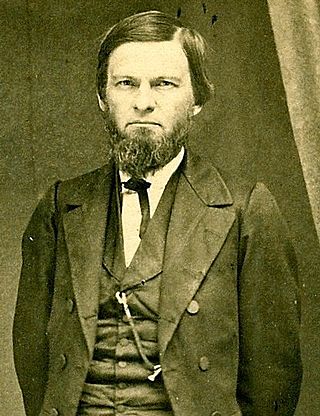
John Albert Broadus was an American Baptist pastor and President of the Southern Baptist Theological Seminary.
Charles Fenton Collier was a Virginia lawyer and American politician who served in the Virginia House of Delegates representing first Prince George County then his native Petersburg before the American Civil War, then in the Confederate States House of Representatives and afterward twice became Petersburg's mayor.

Jubal Anderson Early was an American lawyer, politician and military officer who served in the Confederate States Army during the Civil War. Trained at the United States Military Academy, Early resigned his United States Army commission after the Second Seminole War and his Virginia military commission after the Mexican–American War, in both cases to practice law and participate in politics. Accepting a Virginia and later Confederate military commission as the American Civil War began, Early fought in the Eastern Theater throughout the conflict. He commanded a division under Generals Stonewall Jackson and Richard S. Ewell, and later commanded a corps.
The U.S. state of Louisiana declared that it had seceded from the United States on January 26, 1861. It then announced that it had joined the Confederate States (C.S.); Louisiana was the sixth slave state to declare that it had seceded from the U.S. and joined the C.S.

Sara Agnes Rice Pryor, born Sara Agnes Rice, was an American writer and community activist in New York City. Born and reared in Virginia, she moved north after the American Civil War with her husband and family to rebuild their life. He was a former politician and Confederate general; together, they became influential in New York society, which included numerous "Confederate carpetbaggers" after the war. After settling in New York, she and her husband renounced the Confederacy.
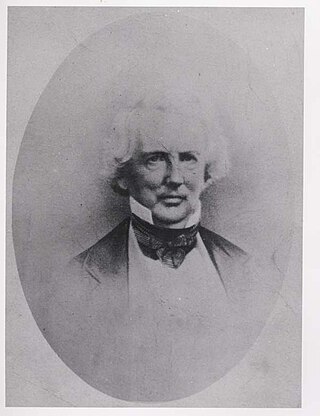
The Virginia Secession Convention of 1861 was called in the state capital of Richmond to determine whether Virginia would secede from the United States, govern the state during a state of emergency, and write a new Constitution for Virginia, which was subsequently voted down in a referendum under the Confederate Government.
References
- 1 2 "Charles Dew". Williams College.
- 1 2 3 "Author confronts family's ties to slavery". Montgomery Advertiser . June 10, 2018. pp. 1D, 4D.
- ↑ Dew 2016, p. 3.
- ↑ Dew 2016, p. 9.
- ↑ Dew 2016, p. 3-5, 15.
- ↑ 1870 U.S. Federal Census for District 6, Gibson County, Tennessee, Family no. 291, p.41 of 43
- 1 2 Dew 2016, p. 5-6.
- ↑ Dew 2016, p. 19-21.
- ↑ John S. Tilley, Facts the Historians Leave Out: A Confederate Youth's Primer (1951)
- ↑ Dew 2016, p. 24-27.
- ↑ Dew 2016, p. 36, 166.
- ↑ Dew, Charles B. (October 16, 2016). "The Unmaking of a Racist". The Chronicle of Higher Education . Retrieved 1 May 2021.
- ↑ Dew (1966) p. viii
- ↑ Smith, John David (September 6, 2016). "Historian examines his past in The Making of a Racist". The News & Observer . Retrieved June 10, 2018.
- ↑ See note on talk page
- ↑ Dew 2016, pp. 36, 166, 106 et seq.
- ↑ Dew (2001) p. 2.
- ↑ Pitts, Leonard (September 2, 2016). "A white Southerner searches for the source of his family's racism". The Washington Post . Retrieved June 10, 2018.